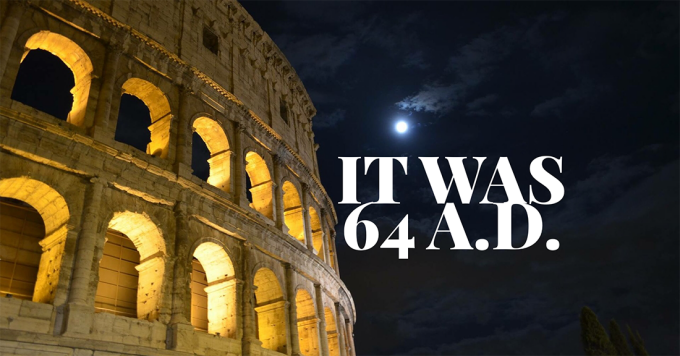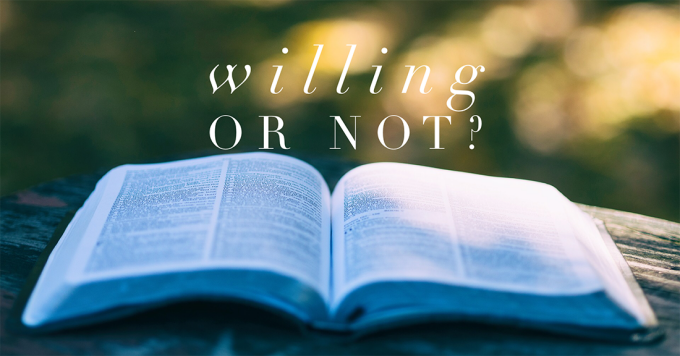...May grace and peace be multiplied to you. 1 Peter 1:2 (ESV)
Nero had a very ambitious and egotistically driven desire to build a monument that would rival and surpass any complex that had been constructed up to that time. The roughly 300 acres that would be required would include magnificent landscaping as well as a 30-meter statue of himself, the Colossus of Nero. The problem was he didn’t really have the space he needed to build such a complex...soooo...since he really didn’t like the construction of the ancient city and much of it had become slum-like, he decided to burn a significant part of it to the ground and then he would have the space needed for his Golden House, Domus Aurea.
The fire, that historian's record as having been set by Nero, beginning on the slope of the Avertine, which looked out over the Circus Maximus, quickly spread out of control and burned for well over a week. It destroyed three of fourteen Roman districts while doing extensive damage to another seven.
He miscalculated the reaction of the people of Rome and found that he needed a scapegoat to blame the fire upon...and the blame fell upon Christians. The emperor publicly blamed the Christians in the city for the fire. It enabled him to wield the power of the empire against those Christians and terrible persecution fell upon those who had trusted Christ as their Lord and Savior. They were burned alive, used as artificial lighting for the gardens and streets of Rome. Some suffered other atrocities in the Colosseum and believers were forced to choose between the emperor and their Savior. Many died for their faith during this period of persecution.
It was before this time of persecution that the Lord, through the Holy Spirit, inspired Peter, the apostle, to write to those who would indeed have this time of persecution in their future. They would need encouragement when times were rough; they would need to be able to cope with what they were going to experience in their journey upon the earth. They would be thirsty for assurance, they would need strengthening, they would need the grace and peace of the Lord, and they would need it in abundance. Not unlike you and me. And they would receive the words that they would need to journey another day with a living hope for the future.
Peter writes, by the Holy Spirit, and prays for just what they needed to read and receive. They could know for certain that the grace (charis) of God...which includes everything that we receive from the Lord, including His mercy, His love, and forgiveness of sin, all of these undeserved blessings of God, are enough, during the difficult journey to bring us the peace that we need, a peace that passes understanding.
“and the grace of our Lord overflowed for me with the faith and love that are in Christ Jesus.”
1 Timothy 1:14 (ESV)
The peace (eirēnē) of God means we have assurance and confidence in the love and care of God, no matter the circumstances. It means that we are well aware, and trust, that God will provide, guide, strengthen, sustain, encourage, deliver, as well as give life, real life during our journey on earth as well as in the future with Him, in heaven, forever.
“I have said these things to you, that in me you may have peace. In the world you will have tribulation. But take heart; I have overcome the world.” John 16:33 (ESV)
Peter would need grace and peace in his life as well. His future would include being thrown into the prison called the Mametine, shrouded in darkness for nine months, suffering torture while chained to a post...and yet...he received the grace and the peace he needed to make the most out of every day of his journey, even leading his jailers to know about and to receive Christ.
Peter needed grace and peace...every day, the recipients of the letter would need grace and peace...every day, and you and I need grace and peace...every day.
You may be in a time of trouble and trial in your life. May God’s grace and peace be multiplied to you...It’s reassuring to remember that God is in control...and good...all the time.
And it’s a good thing to pray for others, those you know, who need the grace and peace of the Lord...and that would include everybody.
Grace and peace come to all who know Christ and trust Him. He is the only one who can, by His grace, bring genuine peace to the human heart and assurance to the human soul.
Introduce people to Jesus, have a conversation with them about how the Lord brings peace to your life, especially during the tough times. What the devil means for bad, the Lord will use for good.
Nero and his minions could not take away the grace and peace of God from believers. Nero only caused the gospel to advance and to spread across Asia. In like manner, no one or nothing can take away the grace and peace of God from you when you lean and trust in Him. Don’t forget! We win!
Final score...Christians 100...Nero, a 0.
Praying for you,
Pray for me,
Bro. Ralph



